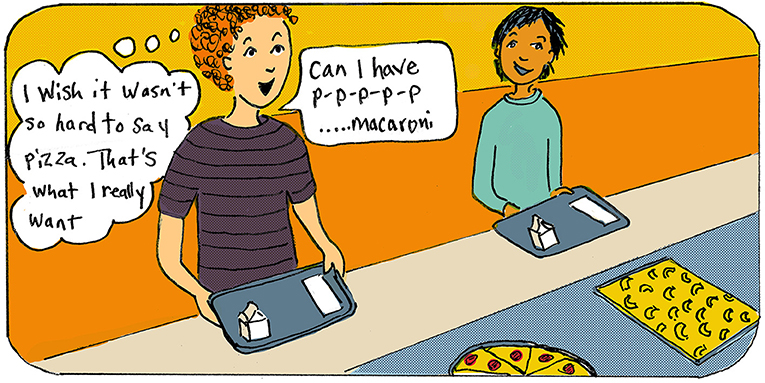Stuttering, often referred to as stammering, is a communication disorder characterized by disruptions in speech flow. It involves repetitions, prolongations, and interruptions of sounds and syllables. Beyond physical manifestations, it’s intertwined with psychological and emotional processes. Genetic, neurological, and environmental factors contribute to its development. Stuttering’s impact varies, causing frustration and social challenges. Effective treatment, including speech therapy and psychological support, is vital. Understanding stuttering is key to fostering empathy and providing meaningful assistance to those affected.
Understanding the Complexity of Stuttering: An In
Stuttering is a multifaceted communication disorder, often characterized by disruptions in the flow of speech. It affects millions of people worldwide, transcending all demographics, and has profound implications on an individual’s life. This article delves into the complexity and meaning of stuttering, aiming to provide a comprehensive understanding of this condition.
Stuttering, also known as stammering, is a speech disorder where the flow of speech is interrupted by repetitions (li-li-like this), prolongations (lllllike this), or abnormal stoppages (no sound) of sounds and syllables. There may also be unusual facial and body movements associated with the effort to speak. It is not simply about the repetition or prolongation of sounds, but also about the underlying mental and emotional processes that accompany these physical manifestations.
The causes of stuttering are complex and not completely understood. It is believed to stem from an interplay of various factors – genetics, neurological developments, and environmental influences. It’s crucial to debunk the myth that stuttering is a result of nervousness or stress. Although these factors can exacerbate the condition, they are not the root cause.
One of the most challenging aspects of stuttering is its unpredictability. The severity can fluctuate not only from day to day, but from situation to situation. Speaking in public may cause a significant increase in stuttering, while singing or speaking in unison may temporarily reduce it. This inconsistency often leads to frustration and can impact a person’s willingness to communicate.
Understanding the psychological impact of stuttering is key. Individuals who stutter often face a range of emotional and social challenges, including fear of speaking in public, shame, bullying, and social isolation. Over time, this can lead to decreased self-esteem and increased anxiety, further complicating the stuttering condition.
Treatment for stuttering varies from person to person. It often involves techniques to manage the physical aspects of stuttering, such as breath control and pacing speech, but also addresses the psychological components with cognitive-behavioral therapy. Early intervention is crucial, particularly in young children, to prevent the development of long-term negative emotional responses.
Stuttering, in essence, is a complex disorder, an intertwining of physical, emotional, and psychological factors. It’s far more than just a speech problem; it’s a condition that impacts every aspect of an individual’s life. By deepening our understanding of stuttering, we can foster empathy and help provide effective support for those living with this condition.
Depth Analysis
Title: Depth Analysis of Stuttering: Understanding the Meaning and Implications
Stuttering, often referred to as stammering or childhood-onset fluency disorder, is a communication disorder that involves frequent and significant problems with the normal fluency and flow of speech. It is characterized by the repetition of sounds, syllables, or words; prolongation of sounds; and interruptions in speech known as blocks.
In-depth understanding of stuttering involves exploring its causes, symptoms, effects, and the various therapeutic interventions available.
Causes: Stuttering is a multifactorial disorder with no singular known cause. It is believed to stem from a combination of genetic, neurological, and environmental factors. Genetics plays a substantial role as stuttering tends to run in families. Neurological discrepancies in people who stutter, such as abnormal brain activity during speech, also contribute to the onset of the disorder. Environmental factors, including high parental expectations or stress, may exacerbate stuttering in predisposed individuals.
Symptoms: Stuttering typically presents itself between the ages of 2 and 6 when children are developing their language skills. However, it may also manifest in adults due to emotional trauma or neurologic diseases. The symptoms can vary significantly, ranging from repetition of sounds or words, long pauses in speech, to the addition of extra words to avoid stuttering.
Effects: Stuttering can significantly impact a person’s quality of life. It may lead to poor self-esteem, avoidance of social situations, and even mental health issues like anxiety and depression.
Therapeutic Interventions: Several therapeutic interventions can effectively manage stuttering. Speech therapy, where individuals learn techniques to control their speech patterns, is the most common treatment. Other therapies like cognitive-behavioral therapy may address psychological issues related to stuttering.
Stuttering is a complex disorder that requires a comprehensive understanding for effective treatment. Research is ongoing to delve deeper into the genetic and neurological aspects of stuttering. With advancements in technology and therapy techniques, the future looks promising for those struggling with this communication disorder.
In conclusion, stuttering is not a reflection of intelligence or competence, but rather a communication disorder that affects the flow of speech. It is characterized by repetition, prolongation, or stoppages of sounds, syllables, or words. This often results in the individual feeling frustrated or anxious, especially in social settings. However, with a supportive environment, appropriate therapy techniques, and a positive mindset, individuals who stutter can improve their speech fluency and confidence. Let’s remember, stuttering is not a barrier to success. Many highly successful individuals from various fields have been known to stutter, but they have not let this hinder their progress. Always remember, your voice matters and your words have power. Don’t let stuttering silence your voice.

